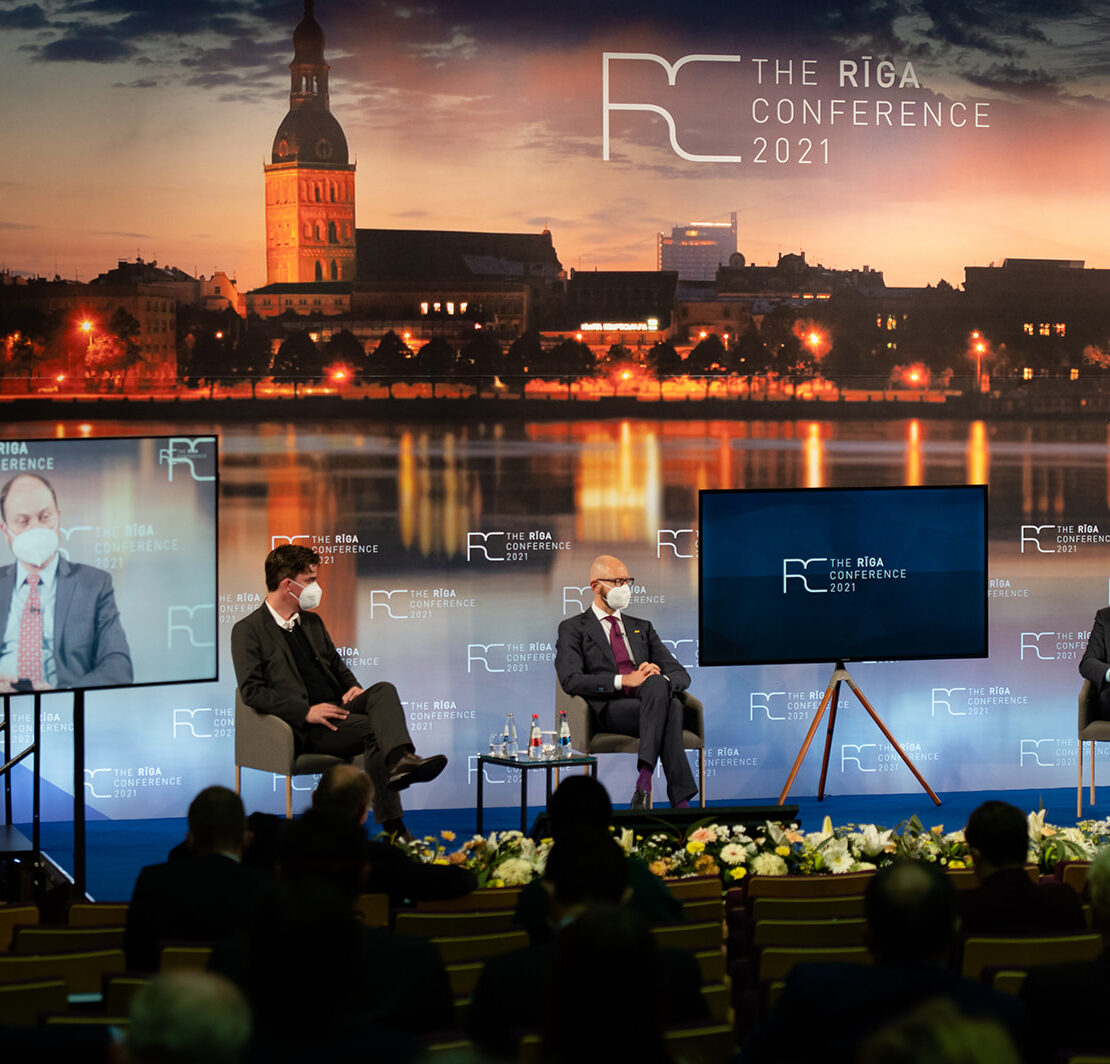Participants:
Prof Dmitry Suslov, Deputy Director, Centre for Comprehensive European and International Studies, National Research University-Higher School of Economics
Kate Hansen Bundt, Secretary General of the Norwegian Atlantic Committee
Martin Kragh, Deputy Director of the Stockholm Center for Eastern European Studies, Senior Research Fellow at the Swedish Institute of International Affairs
James Lamond, Director of the Democratic Resilience Program at the Center for European Policy Analysis
Arseniy Yatsenyuk, Chairman of the Kyiv Security Forum, Prime Minister of Ukraine (2014-16)
Moderator: Vladimir Kara-Murza, Russian Politician
The discussion began with a speaker highlighting that Russian domestic policy is not going to be the most predominant of factors in Russian foreign policy, even if Putin leaves. The structure of the international system and distribution of power is more important, and Russia aims to establish itself as an independent power without having to rely on any other country. It aims to promote Russia-centrism in its sphere of influence, a successful task so far with the exception of the Baltic states. It is also focusing on increasing influence in any areas where there is not a dominant power already, like the middle east. Thus, Russia has three dimensions in foreign policy: post-soviet space, relations with west, and relations with everyone else. In the post-soviet space Russia is identifying red lines for other countries, like ensuring that they do not join economic and security organizations of the west or become instruments of containing or becoming ant-Russian. Russian policy towards the west is in creating manageable confrontation and ensuring no further escalation, while also not making any conciliations. With the non-West, Russia aims to build strategic partnerships with mainly China, but in the rest of the world as well. Altogether, Russia sees the world as a an increasingly non-Western oriented order and finds a growing demand for partnerships with itself across the world as a third option between Russia and the US.
Another speaker highlights that the west needs to quickly consider how to react to the current confrontation between the west and Russia. A big issue is even in the terminology approach used. It is incorrect to talk about a post-soviet space as it signifies some link between countries and Russia where such link does not exist anymore, granting legitimacy to the claims of Vladimir Putin. Countries like Ukraine should not be discussed as being under a Russian sphere of influence as it belittles their very sovereignty.
Another discussant continued by stating that dialogue with Russia is critical, but it must be strong. The West cannot give up on the core principles of international rule of law and the liberal democratic values that support them. This dialogue must come with a realization from the West, that Russia is no longer a global superpower – just a regional power, and this should be leveraged against them.
The next discussant highlighted two perspectives in Russia in Washington’s perspective. One is that Russia is a middling power with a weak economy, negative economic and demographic trends and that it is not a real competitor. The other narrative is that Putin is a genius that is acting as an touchable gray cardinal that can infiltrate Western democracies. Both are simplistic in their impact on foreign policy – Russia cannot simply be managed, nor can it be engaged to export democratic values. The reverse has happened in Russia and its allies have taken advantage of the existing system. The Russian tolerance for risk and disruption are now very known. Discourse needs to continue between the West and Russia, but it needs to be on redrawn lines.
The panelists agree that much of the problem is also in Western enablers that are willing to launder and accept Russian influence and money. However, harder steps need to be taken by integrating what is considered the post-soviet block into NATO. The process needs to be accelerated, but countries like Georgia and Ukraine must also perform to be considered for joining.

